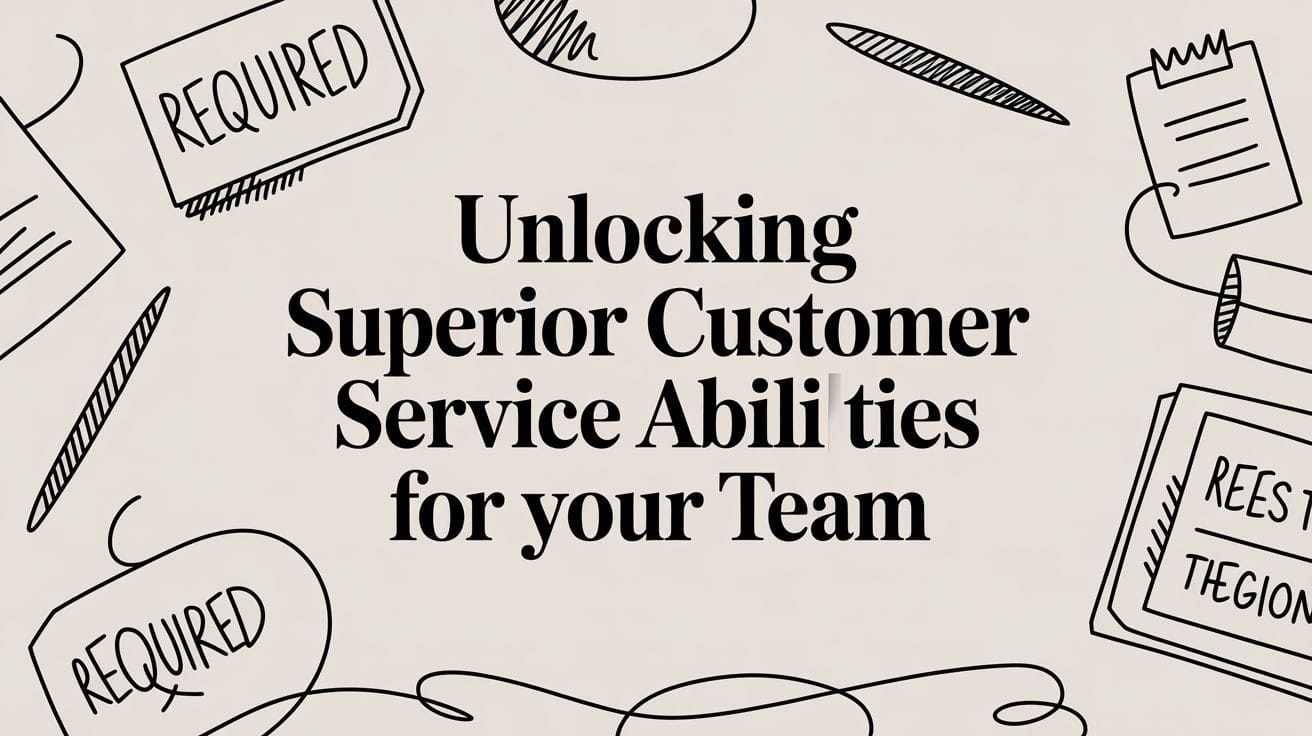In today's competitive business landscape, exceptional customer service can be the defining factor that sets a company apart. Businesses that prioritize customer satisfaction often enjoy increased loyalty, positive word-of-mouth marketing, and a strong competitive advantage. Developing and honing customer service skills not only enhances the customer experience but also drives business growth and success. In this article, we'll explore how exceptional customer service skills can boost your business and offer actionable insights into improving these skills within your organization.
The Importance of Customer Service Skills
Customer service skills are at the heart of building and maintaining strong customer relationships. These skills encompass communication, active listening, empathy, and problem-solving. When your team is equipped with these capabilities, it fosters a positive interaction that can transform one-time buyers into lifelong customers.
Enhancing Communication Skills
Listening to Understand
Effective communication requires more than just speaking clearly. It involves listening attentively to understand the customer's needs and concerns. This approach ensures that customers feel valued and understood, and it allows service representatives to provide solutions that truly address customer issues.
Clear and Concise Responses
Providing clear and concise answers is crucial in reducing misunderstandings and managing customer expectations. Training your team to articulate their thoughts effectively can prevent miscommunication and enhance the customer experience.
Developing Empathy
Empathy is the cornerstone of connecting with customers on a personal level. When service representatives empathize with customers, they create a feeling of care and understanding. Empathy can be cultivated by encouraging staff to put themselves in the customer's shoes, considering their emotions and perspective during interactions.
Problem-Solving Skills
Anticipating Customer Needs
Proactively addressing potential issues before they arise can significantly enhance customer satisfaction. Train your team to anticipate customer needs by staying informed about product knowledge and common service requests, which enables them to offer preemptive solutions and advice.
Handling Complaints Effectively
Handling complaints isn’t just about resolving an issue; it’s about turning potentially negative experiences into positive ones. Empower your staff with the tools and authority to rectify problems and ensure that the resolution leaves a positive lasting impression.
Implementing Continuous Training and Feedback
To maintain a high standard of customer service, continuous training and feedback are essential. Implement regular training sessions to keep your team updated on the latest industry practices and customer service trends. Additionally, gathering feedback from customers can help identify areas for improvement and encourage a culture of ongoing growth.
FAQs
What are the key customer service skills to focus on?
The key customer service skills to focus on include effective communication, active listening, empathy, problem-solving, and the ability to handle complaints gracefully. Enhancing these skills will improve customer interactions and satisfaction.
How can businesses measure the effectiveness of their customer service?
Businesses can measure customer service effectiveness through customer satisfaction surveys, net promoter scores (NPS), customer feedback, and monitoring customer retention rates. These metrics provide valuable insights into how well your team is performing.
Why is empathy important in customer service?
Empathy in customer service is important because it helps build a connection with customers. When customers feel understood and valued, they are more likely to trust the business and remain loyal, which can lead to increased business success.
What role does leadership play in enhancing customer service skills?
Leadership plays a crucial role in enhancing customer service skills by setting standards, providing training and resources, and fostering an environment that prioritizes customer satisfaction. Leaders who lead by example can inspire their team to deliver exceptional customer service.
How often should customer service training be conducted?
Customer service training should be conducted regularly, typically at least once or twice a year. However, additional sessions may be needed based on changes in products, services, or customer service protocols to ensure that the team remains knowledgeable and effective.







